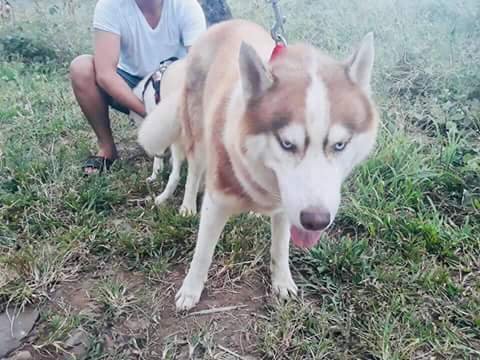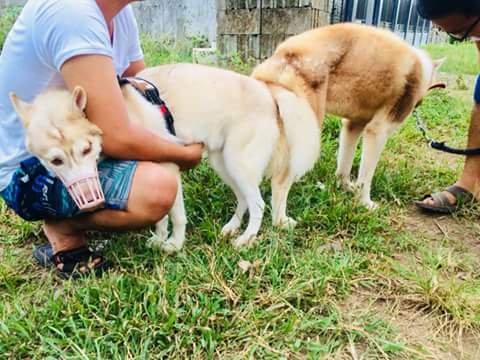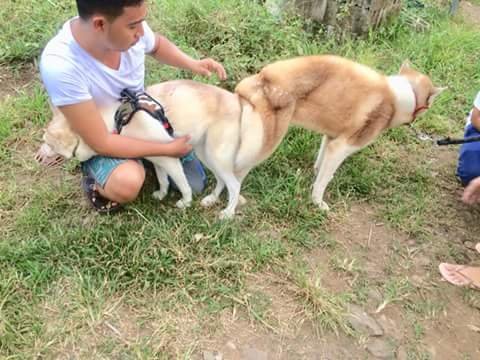
Breeding the Siberian husky requires research, patience and time in order to produce high-quality, healthy puppies. These hardworking dogs are compassionate, intelligent and eager to please. Traditionally used as sled dogs, they also make outstanding therapy dogs or family pets. Breeding Siberian huskies is all about maintaining these qualities by mating two healthy, prime examples of the breed.



Step 1
Choose a bitch and stu with excellent temperaments. Both dogs should meet the breed standard for Siberian huskies in build and personality.
Step 2
Ensure the registration of both the bitch and stud. The dogs should both be registered, with breeding rights, with the Philippine Animal Wellness Veterinary Clinic (PAWVC). Both dogs should be registered with the same club(s) so the puppies are eligible for registration.
Step 3
Research the bloodlines of both dogs. The registration paperwork will typically provide you with a family tree. This will give you a good idea of any potential health or temperament issues. If you're breeding show dogs, knowing the titles and achievements of dogs in each bloodline will be helpful in choosing a mating pair.
Step 4
Take both dogs to a qualified veterinarian for a full screening. This will help determine whether the dogs have genetically transmittable health issues, as well as ensure that the bitch is healthy enough to successfully carry and give birth to puppies. Make sure to have both dogs' thyroids, eyes and hips checked for any issues; problems with these can be passed on to puppies.
Step 5
Talk to other experienced breeders. They'll help you determine if the bitch and stud are a good match and qualified for mating. Two or three other opinions will help you make the best choices when breeding Siberian huskies.
Step 6
Allow the bitch and stud to mate when the bitch is in the second part of her heat. This stage, known as estrus, lasts for 1 to 2 weeks. The bitch will have a slightly pink or straw-colored vaginal discharge, and both she and the stud will be receptive to mating.
Step 7
Have your ve**terinarian do a blood test on the bitch to determine if she's pregnant. If she is, provide her with routine prenatal care and a high-quality food meant for pregnant dogs.
Step 8
Examine all puppies once they're born. You should have routine health checks and vaccinations for each. You'll also need to determine which ones may be eligible for breeding in the future. If any of the puppies has health issues or deformities, you'll need to obtain a limited registration for it.
Step 9
Get registration paperwork from the organization(s) the mother and father are registered with. This may be a full registration, which allows future owners of the puppies to breed the dog, or a limited registration, which doesn't allow breeding.
Step 10
Find loving, prepared homes for the puppies. Interviewing potential buyers and even performing a home visit are all common when selling Siberian huskies. Many responsible breeders include a clause in their sales contracts stating that the puppy should be returned to them if the new owner can no longer take care of it.
Height: 14-17 inches
Weight: 25-35 lb
Lifespan: 12-14 years
Group: Working Group (size variation)
Best Suited For: Families with children, active singles, houses with yards
Temperament: Energetic, friendly, loyal, curious
Comparable Breeds: Siberian Husky, Alaskan Malamute
Fifty-eight percent of people put pets in family and holiday portraits.